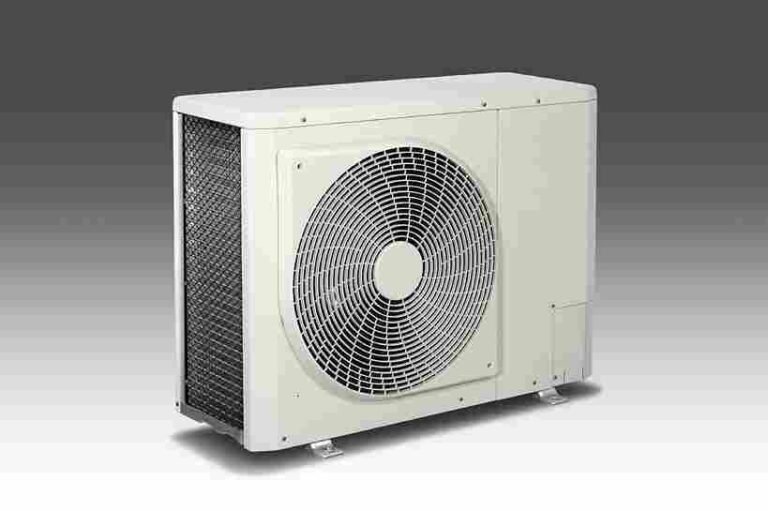Have you ever found yourself sweating through a summer heatwave, only to realize your home’s air conditioner isn’t cooling like it used to? If so, you might have wondered where to buy Freon for home AC unit—and whether you can simply top it off yourself. With changing regulations, environmental concerns, and a market full of both legitimate and questionable sellers, it’s more important than ever to understand how to safely and legally purchase refrigerant for your air conditioning system. This comprehensive guide will walk you through everything you need to know, from the basics of Freon and its role in your AC, to the best places to buy it, and why working with certified professionals is crucial for your comfort, safety, and the environment.
What is Freon and Why is it Essential for Your Home AC Unit?
Understanding Freon and Its Role
Freon is a brand name that has become synonymous with refrigerants used in air conditioning and refrigeration systems. In technical terms, Freon refers to a family of chemicals—most notably R-22 (an HCFC) and R-410A (an HFC)—that circulate within your AC unit, absorbing heat from inside your home and releasing it outside. This process is what keeps your living space cool and comfortable during hot weather.
Types of Freon Used in Home AC Units
- R-22 (Freon): Once the industry standard, R-22 is now being phased out due to its ozone-depleting properties. It is only available from recycled or reclaimed sources, making it scarce and expensive .
- R-410A (Puron): The current standard for most new residential systems, R-410A is more environmentally friendly than R-22 but still has a high global warming potential. It will be phased out for new equipment starting in 2025, but will remain available for servicing existing systems .
- Newer Alternatives: Refrigerants like R-32 and R-454B are being adopted for their lower environmental impact and will become standard in new systems .
Why the Right Freon Matters
Using the correct type of refrigerant is essential for your AC’s performance, efficiency, and longevity. The wrong refrigerant can damage your system, void warranties, and even pose safety risks. Always check your unit’s manufacturer label or manual to confirm the required refrigerant type.
Environmental Considerations
Due to their environmental impact, both R-22 and R-410A are subject to strict regulations and phase-out schedules. The EPA’s rules are designed to protect the ozone layer and reduce greenhouse gas emissions, so it’s important to stay informed about which refrigerants are legal and available for your system .
Signs That Your Home AC Unit Needs More Freon
Recognizing the Symptoms
If your air conditioner isn’t cooling as it should, low refrigerant could be the culprit. Here are the most common signs:
- Reduced Cooling Efficiency: The AC struggles to reach the set temperature, or the air from vents feels warmer than usual .
- Longer Running Times: The system runs for extended periods without effectively cooling your home .
- Ice Formation on Coils: Low refrigerant can cause the evaporator coil to freeze, leading to visible ice or water puddles near the unit .
- Higher Energy Bills: The AC works harder and longer, resulting in increased electricity costs .
- Hissing or Bubbling Noises: These sounds may indicate a refrigerant leak .
How Freon Leaks Occur
Freon circulates in a closed loop and should never “run out” under normal conditions. If your system is low, it’s almost always due to a leak—often caused by corrosion, vibration, or physical damage to the refrigerant lines .
The Risks of DIY Freon Refills
Attempting to add Freon yourself is not only illegal for most homeowners, but also dangerous. Improper handling can lead to health hazards, environmental harm, and costly system damage. Always consult a certified HVAC technician if you suspect a refrigerant issue .
Legal and Safety Considerations for Buying Freon
EPA Regulations and Certification
The U.S. Environmental Protection Agency (EPA) strictly regulates the sale and handling of refrigerants. To purchase most types of Freon (including R-22 and R-410A), you must have EPA Section 608 Technician Certification . This ensures that only qualified individuals handle these chemicals, minimizing environmental and safety risks.
Why Certification Matters
- Legal Requirement: It is illegal for non-certified individuals to purchase or handle most refrigerants used in home AC units .
- Environmental Protection: Certified technicians are trained to prevent leaks and properly dispose of refrigerants, protecting the ozone layer and reducing greenhouse gas emissions .
- Safety: Refrigerants can cause frostbite, respiratory issues, or even asphyxiation if mishandled .
Risks of Unauthorized Sellers
Buying Freon from unauthorized or unverified sources can result in counterfeit or contaminated products, which may damage your AC system and void warranties. Always choose reputable, EPA-compliant suppliers .
Safe Handling and Environmental Advice
Never attempt to handle or dispose of refrigerants yourself. Improper handling can harm both your health and the environment. Always rely on certified professionals for any refrigerant-related work .
Where to Buy Freon for Home AC Unit: Top Options
Local HVAC Supply Stores
What to Expect:
Local HVAC supply stores are often the most reliable source for genuine refrigerants. However, they typically sell only to certified professionals. If you are a homeowner, you may be able to purchase refrigerant only if you are working directly with a certified technician .
Pros:
- Immediate pickup
- In-person support
- Product authenticity
Cons:
- Certification required for most purchases
- Limited access for non-professionals
Big Box Retailers (Home Depot, Lowe’s, Walmart)
Availability:
Some big box retailers may carry small cans of refrigerant, but these are usually intended for automotive use (e.g., R-134a) and not for home AC units. For home AC refrigerants like R-22 or R-410A, certification is required, and most retailers will not sell to the general public .
Restrictions:
- Certification required for purchase
- Limited selection for home AC applications
Online Retailers
Popular Sites:
- Refrigerants Center
- Absolute Refrigerants
- USA Refrigerants
These online suppliers offer a wide range of refrigerants and ship nationwide. However, they require proof of EPA certification for most home AC refrigerants .
Tips for Verifying Legitimacy:
- Check for EPA compliance and clear contact information
- Read customer reviews and verify business credentials
- Avoid deals that seem too good to be true
HVAC Service Companies
Why Hire a Professional?
Most homeowners will find it easiest and safest to hire a licensed HVAC company. These professionals can:
- Diagnose and repair leaks
- Supply and recharge the correct refrigerant
- Ensure compliance with all legal and safety requirements
Cost Considerations:
While professional service is more expensive upfront, it reduces the risk of costly mistakes, system damage, and legal issues .
Specialty Refrigerant Suppliers
Wholesale Distributors:
Some specialty suppliers cater to certified technicians and contractors, offering bulk or wholesale pricing. Homeowners may access these suppliers only when working with a professional .
Options for Homeowners:
If you are not certified, your best option is to coordinate with a licensed HVAC technician who can purchase and install the refrigerant for you.
How to Choose the Right Freon for Your Home AC Unit
Identifying Your AC’s Required Refrigerant
- Check the Manufacturer Label: The type of refrigerant required is usually listed on a label on the outdoor unit or in the owner’s manual.
- Common Types: R-22 for older systems, R-410A for most systems installed after 2010, and newer alternatives like R-32 or R-454B for the latest models .
Differences Between R-22 and R-410A
- R-22: Phased out, only available from recycled sources, expensive, and environmentally harmful .
- R-410A: Current standard, more efficient, but also being phased out for new equipment starting in 2025 .
Compatibility and Environmental Impact
Never mix refrigerant types. Using the wrong refrigerant can damage your system and is illegal. Newer refrigerants are designed to be more environmentally friendly, with lower ozone depletion and global warming potential .
Consult an HVAC Technician
If you’re unsure which refrigerant your system uses, or if you’re considering a retrofit to a newer refrigerant, always consult a certified HVAC professional for guidance.
Step-by-Step Guide: What to Do After Buying Freon
1. Schedule Professional Installation
Contact a certified HVAC technician to handle the refrigerant recharge. They will:
- Inspect your system for leaks
- Recover any remaining refrigerant safely
- Repair leaks before adding new refrigerant
2. Risks of DIY Freon Charging
DIY charging is illegal for most homeowners, dangerous, and can result in system damage, health hazards, and environmental harm .
3. Professional Recharge Process
- Leak Detection and Repair: Technicians use specialized tools to find and fix leaks.
- Evacuation: The system is vacuumed to remove air and moisture.
- Recharge: The correct type and amount of refrigerant is added.
- Testing: The system is tested for proper operation and efficiency .
4. Checking System Performance
After the recharge, monitor your AC’s performance. If cooling issues persist, further repairs may be needed.
Tips for Maintaining Your Home AC Unit to Avoid Frequent Freon Refills
Regular Maintenance Schedules
- Replace or Clean Air Filters: Every 1–2 months during the cooling season .
- Inspect and Clean Coils: Both indoor and outdoor coils should be cleaned regularly .
- Check and Clear Condensate Drains: Prevent water damage and maintain humidity control .
Checking for Leaks and Prompt Repair
Have your system inspected annually by a professional to catch leaks early and avoid costly repairs .
Cleaning Coils and Filters
Dirty coils and filters reduce efficiency and can cause the evaporator coil to freeze, mimicking low refrigerant symptoms .
Proper Thermostat Use
Set your thermostat to a reasonable temperature and avoid frequent adjustments, which can strain your system .
Professional Inspections
Annual professional maintenance is the best way to ensure your AC runs efficiently and to catch small problems before they become major issues .
Frequently Asked Questions (FAQs) About Buying Freon for Home AC Units
Can I buy Freon without certification?
No. In the U.S., only EPA-certified technicians can legally purchase most refrigerants used in home AC units .
Is Freon dangerous if handled improperly?
Yes. Freon can cause frostbite, respiratory issues, and environmental harm if mishandled. Only certified professionals should handle refrigerants .
How much does Freon cost?
Prices vary by type and availability. R-22 is expensive due to its phase-out, while R-410A is more affordable but will become less available after 2025. Expect to pay $100–$1,000+ for a recharge, including labor .
Can I switch refrigerant types in my old AC unit?
Not directly. Retrofitting to a new refrigerant may be possible for some systems, but it requires professional assessment and modifications .
What if my AC still doesn’t cool after adding Freon?
Persistent cooling issues may indicate other problems, such as compressor failure, electrical issues, or airflow restrictions. Consult a professional for a thorough diagnosis .
Key Takeaways
- Where to buy Freon for home AC unit: Only from EPA-certified suppliers or through licensed HVAC professionals.
- Certification is required: It is illegal and unsafe for non-certified individuals to purchase or handle most refrigerants.
- Choose the right refrigerant: Always use the type specified by your AC manufacturer.
- Professional installation is best: Certified technicians ensure safety, legal compliance, and system performance.
- Regular maintenance prevents problems: Annual inspections and prompt repairs help avoid costly refrigerant leaks and system failures.
Conclusion
Understanding where to buy Freon for home AC unit is about more than just finding a supplier—it’s about ensuring your comfort, safety, and compliance with the law. With strict EPA regulations, environmental concerns, and the risks of improper handling, the best approach is always to work with certified HVAC professionals. They have the expertise to diagnose issues, repair leaks, and recharge your system safely and efficiently. By maintaining your AC unit and staying informed about refrigerant regulations, you’ll enjoy reliable cooling and peace of mind for years to come.
Ready to keep your home cool and comfortable? Contact a local certified HVAC professional or visit a trusted, EPA-compliant supplier for your Freon needs today.
Home valleys.com

